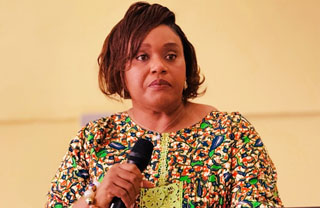By Godgift Harris
The ambitious Excellence in Learning (EXCEL) Project, flaunted by Education Minister Jarso Jallah as a “bold and transformative initiative.”
It is raising eyebrows among lawmakers and education experts.
As such, some of the lawmakers have warned the nation risks repeating past mistakes in donor-funded education programs.
Madam Jallah defended the US$60 million credit agreement between government, and the International Development Association (IDA) during a recent public hearing on Capitol Hill.
While before the House of Representatives Joint Committee on Education, Judiciary, Public Administration, Banking and Finance and Ways, Means and Finance, Madam Jallah described the project as a nationwide intervention.
She said it was designed to improve foundational learning in over 2,000 public schools in the 15 counties, with a focus on early childhood and primary education.
She also confirmed that an additional US$28.7 million grant from the Global Partnership for Education (GPE) would bring the total investment to US$88.7 million, framing the initiative as a key component of President Joseph Nyuma Boakai’s ARREST Agenda, which prioritizes human capital development.
“This project is a major step toward building strong literacy, and numeracy skills in our children and ensuring equitable access to quality learning,” Madam Jallah said.
However, skepticism is mounting. Lawmakers pressed hard on the project’s sustainability, oversight, and tangible impact.
Representative Nyahn G. Flomo, Chair of the House Committee on Education, warned that the Legislature would not approve the loan without a thorough evaluation of its fiscal and developmental implications.
“We have a constitutional duty to ensure that any borrowing is transparent and justified,” Rep. Flomo said.
“Education financing must not become another debt trap or a short-lived project that fails to deliver real change.”
Education analysts caution that Liberia’s long history of donor dependence has often yielded disappointing results.
Persistent challenges, including teacher absenteeism, poor learning outcomes, dilapidated school infrastructure, and weak accountability mechanisms continue to plague the system.
Critics argue that without structural reforms, and sustained domestic funding, the EXCEL Project risks replicating the failures of previous interventions, such as the Partnership Schools for Liberia (PSL) program, which faced backlash over limited community involvement and opaque operations.
“Development aid should complement, not replace, the government budgetary responsibilities,” said a Monrovia-based education analyst.
“Liberia needs consistent investment in teacher training, school monitoring, and curriculum reform not just another short-term project.”
The proposed loan package aims to strengthen teacher capacity, improve classroom infrastructure, and enhance school management systems.
But lawmakers stress that its success hinges on effective implementation, regular audits and measurable outcomes that meaningfully improve learning for students in both rural and urban areas.
As the joint committee continues deliberations, Liberians are watching closely.
If approved, the EXCEL Project would represent one of the largest education-focused investments.


